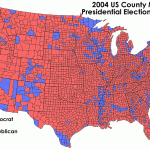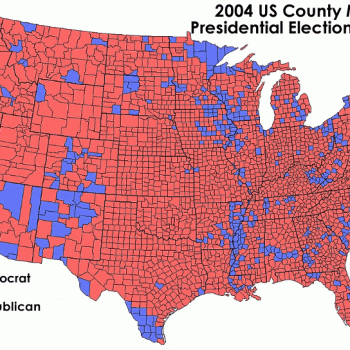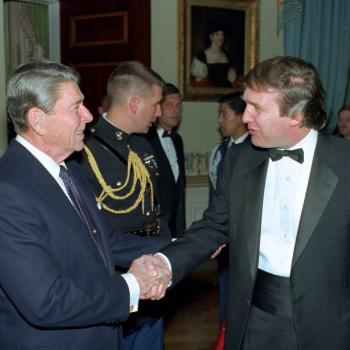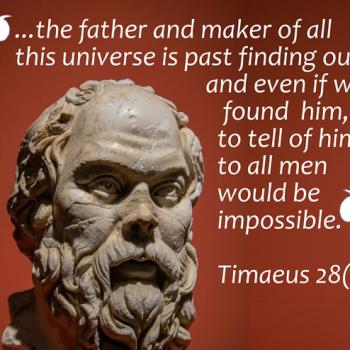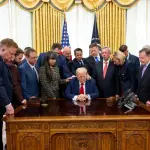Why A Christian CAN Vote for Donald Trump – Part 3

Remember two things about WHY I am writing this series:
1. I have had probably a dozen committed Christians sincerely ask me: “How can you as a Christian…as a Pastor…as an academic, vote for Trump? [so I am explaining that in this series]
2. My target audience is the serious Christian who feels (or has been told) they should not vote for Trump. I am NOT speaking to Democrats who will never vote for Trump…or probably any other Republican. Nor am I trying to convince Trump haters who are so committed against him that they cannot listen.
I am not name-calling.
I am trying to present well-thought out reasons for WHY I support Donald Trump to be POTUS.
Here is a wisdom saying that needs to be considered:
Desperate times call for desperate measures.
Many of us have had a teacher…or a coach…or perhaps our father who was hard-nosed, or arrogant, or a bit mean. Perhaps some of us had such a “leader” who we came to respect…maybe years after the fact.
I can feel the waves of angst from some readers – some of you will stop reading right here. Please try to keep reading…and try to be objective.
Here is a description some of you might agree with:
Charismatic, irreverent, impulsive and inspiring, often at the same time…a showman…a massive ego and the ambition to match. But he could also motivate…

Does that sound like Donald Trump?
This citation comes from Patton’s Payback, by Stephen L. Moore.
Four Star General George S. Patton was known to be a great leader, yet he used crude language, had a bad temper, impulsive AND was not liked by many of his colleagues.
“But this is a military general, not a President!”
YES, and 31 U.S. Presidents served in the military with 12 Presidents serving as generals prior to becoming the Commander-in-Chief.
You Can Please Some of the People,
Some of the Time
How about this description of this great leader:
“…brash and petulant…egotistical, visionary and unconventional…an enigma…[and a] paradoxical life”
Trump? Nope.
Winston Churchill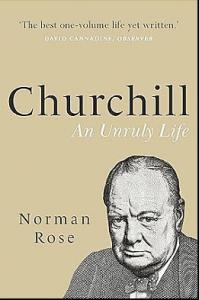
The quote above comes from the abstract of Churchill: An Unruly Life, by Norman Rose (1994).
I grew up hearing about the great Winston Churchill. The man who kept Europe from falling into the hands of Hitler.
Like many people around my age, I have heard the audio of his famous speech “…we shall fight in France, we shall fight on the seas and oceans…we shall fight in the fields…we shall fight in the streets…we shall never surrender…”
I was stunned while living in the U.K. [1997-2001] to find so many Brits who seemed to hate Churchill. These were mostly people 40 years old and younger. In their wonderful efforts to “properly teach” the younger generations, the educators seem to have focused more on Churchill’s flaws than giving a balanced presentation.
+ he could be rather racist
+ was prone to be brutal with the use of military force
+ known for making crude remarks at detractors
+ he was rude to people who criticized him
There is the famous exchange with Bessie Braddock in 1946 (witnessed by a bodyguard who was present):
Braddock: “Winston, you are drunk.”
Churchill: “Madam, you’re ugly. But tomorrow I shall be sober.”
In The Wicked Wit of Winston Churchill, Dominique Enright (2011) opens the chapter with a quip made by one of Churchill’s early girlfriends to a man working for Churchill. He was Churchill’s first private secretary and was in his nervous first day of work. The girlfriend said to him: “The first time you meet Winston you see all his faults, and the rest of your life you spend in discovering his virtues.”
[Now you know what I am doing…just keep reading. This is interesting.]Who does this sound like?
how…unnecessarily cruel and demeaning [he] could be
to the people who helped make [his] dreams come true…
“Nasty was not necessary. It hindered him more than it helped him…angry outbursts…He [is] capable of hyperbole and cruelty…and…delivered some devastating rebukes to employees…he feels he has a liberty and a license to do that [parking in a handicapped spot]. The normal rules of social engagement, he feels, don’t apply to him.”
These descriptions come from a New York Times article titled “The Bad Behavior of Visionary Leaders.” The author is pulling quotes from three different biographies on Steve Jobs, Jeff Bezos and Elon Musk.
Steve Jobs – Jeff Bezos – Elon Musk
I am quite sure if you read this article, or better, if you read the books on each man…
I am quite sure you will NOT trade in your iPhone for an Android.
You will NOT STOP using Amazon.
You might stop using X, but if you own a Tesla…you will NOT trade it in for a Honda Civic or a F-150.
My point should be clear by now:
Some great leaders are edgy, direct, odd, crude, rude sometimes, and speak their mind. We have mentioned the following visionary leaders who have been accused of very similar invectives like Trump:
– a 4-star WW2 Army General
– the WW2 Prime Minister of Great Britain
– three genius businessmen, all three billionaires
There are many people who do not like someone who says what they really think without concern of whether you might find their opinion offensive. Many visionary leaders are smarter than most of their peers, or they simply think faster and are blessed (and cursed) with a very high level of self-confidence.
 Concluding Comments
Concluding Comments
There are many highly successful, highly intelligent people who might also be hindered with low social skills, or a slight emotional disability. Symptoms could be:
– interrupting others during conversation
– lack of ability to interpret social/emotional cues – body language, tone of voice or subtle facial expressions
– Not able to easily empathize or understand others
– Behavior issues – aggression, outbursts of anger
– Obsessive tendencies or repetitive behaviors
What is my point in this article?
I am illustrating how great (visionary) leaders often offend some people. I started with George Patton and Winston Churchill: a military general and a politician. Now we have this article on Steve Jobs, Elon Musk and Jeff Bezos: all three broke new ground in the business world of technology. All three are highly intelligent; and all three have behavior patterns that offend others.
I could add many more examples of great leaders who had great accomplishments, yet also had flaws and were offensive to others. Most great leaders inspire great devotion in some…and hatred (or loathing) in others.
And…I could go on.
Many great athletes have been known to be arrogant and full of themselves. But they were not only great players – some were great leaders. They inspired and/or challenged their teammates to be their best.
MANY people who cannot stand Trump truly like and admire some of the leaders I have named in this article.
“But none of these men are trying to be the POTUS!”
I understand.
But the observations I am pointing out in all of my articles should make the objective Christian at least THINK about not yielding to a knee-jerk reaction against Donald Trump.
We have great leaders in all walks of life who have flaws yet we can easily look past these flaws to see their leadership qualities. Many people admire Patton and Churchill even though they were flawed. Some Trump haters continue to buy and/or use products invented by Jobs, Bezos and Musk even while they are flawed men.
We keep cheering for teams coached and led by men who many others may hate.
We have the privilege to cast a vote for the person we want to lead our nation. Most Christians down through the centuries have not had a voice like we do.
We always have a choice between two flawed individuals.
Great leaders are flawed. Either refrain from voting (which I did as a young Christian) or you do your best to be involved in the making of your government.
Next Article in this Series:
I will lay out the MAIN reason average Americans: mostly blue collar, middle income and many who live in more rural areas of our nation – WHY they love Donald Trump so much.
The reason might surprise you.
Trump is tapping into an American sub-culture that existed years prior to his official entrance into politics. Stay tuned. If you plan to vote for Trump – go vote early this time.



